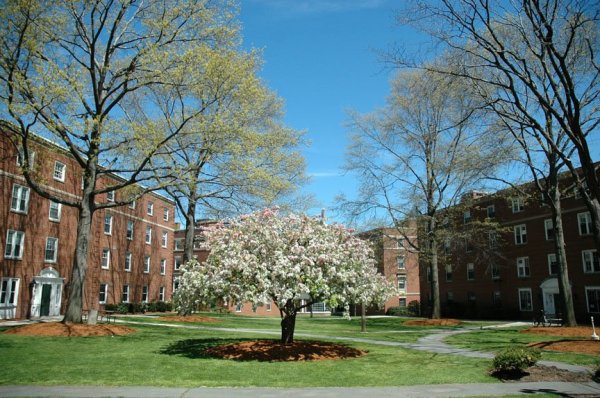By Mackenzie Farkus
Staff Writer
When Facilities turned on the heating in residence halls for the winter, first-year student and Morse Hall resident Cara Stockman did not expect building temperatures to be so warm. Stockman noticed that the majority of Morse Hall residents that she spoke with kept their windows open and their fans on to combat the heat.

“When it was clear that plunging outdoor temperatures were not going to be enough to cool everything down, I contacted Residence Life and explained that numerous residents and myself were all having trouble sleeping at night and could not close the windows,” Stockman said. “Several students told me that the sounds of traffic and ambulances kept them up at night because their windows were open and because it was too hot.”
In most of the underclassmen dorms that do not have temperature controls for each room, heaters are located directly underneath windowsills. For those with their windows open, heat escapes outside. For Stockman and many other students, this presents an environmental problem.
“The most prominent issue here is the wasting of precious fossil fuels,” Stockman said. “Not only is additional electricity being used to power personal fans in everyone’s rooms, the heat coming out of the vents is just flowing right out of the windows.”
Although Stockman sent multiple emails to Residence Life with her concerns, they suggested that she should reach out to Facilities to fix her own dorm’s temperature. Facilities is in charge of heating for both the residence campus and the academic campus.
“In an email, I attached a research study and article that produced results on the effect of cooler temperatures and better sleeping. I wanted to highlight the amount of energy literally going out the windows and how it is having a negative effect on sleep in the dorms,” Stockman said. “Residence Life promptly answered me, but suggested only that I should submit a work-order for my room. I responded that I had every intention of doing so, but that this concern should be addressed building- and campus-wide.”
When Facilities came to change Stockman’s dorm room temperature, her concern only grew when she learned how the ventilation system works in Morse Hall.
“I was informed from Facilities that the heat sensor for each floor is located in two rooms per floor. If it’s particularly cold in one of these rooms, the system will boost the temperature for the entire floor,” Stockman said. “When our extremely helpful Facilities staff took measurements in our room, the temperature was above 72 degrees Fahrenheit. Additionally, since submitting the work order and having the temperature lowered, the temperature in our room only remained low for a few days. Now, it is right back to where it started. There is simply no need for Simmons to pay for energy that is contributing to fossil fuel emissions and causing the opposite of comfort.”
Kelly Schwing, a senior and resident of Arnold Hall, felt overheated in her residence building even though her dorm has temperature controls. For Schwing, this makes living with multiple sclerosis more difficult.
“I live in Arnold, where luckily we have control over our own heat, but it’s a thick heat,” Schwing said. “When you’re as sensitive to it as I am, you can feel it rising in increments I can’t describe. Luckily, my roommates are understanding when I have to turn off the heat.”
Schwing expressed that she is impacted when she goes into non-residential buildings as well.
“I walked into [the Main College Building] the other day to meet with Disability Services and going from harsh cold to extreme heat put me in a dangerous situation,” Schwing said. “I’ve learned to improvise and tie my hair up and put the coldest object I can find on my wrists. The other day that happened to be an ice coffee. I jokingly tweeted that I was going to sue if I dropped from the heat, but I kind of have to wonder how serious that possibility is.”
Both Stockman and Schwing are hoping that Facilities will lower the heating before the semester ends, but are willing to continue advocating on behalf of residents that are feeling overheated in buildings across campus.
Facilities did not respond to a request for comment.














